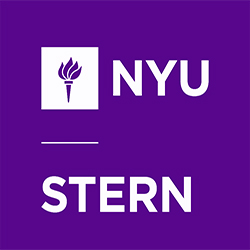When selecting our second semester courses, the debate for many of us was how to meet the core course requirement, while leaving more slots for the cooler electives. Now, here’s a thought: An experiential course, with only one introductory session in the classroom, all the rest spent outdoors, and still counted as a core course?
Yes! It exists and I am in it. Stern added a new section to the Operations Management course called “Ops in NYC” this semester. The class uses New York City as its platform, and every Wednesday afternoon, we visit a different business in the city to learn how they run their operations. The overall breadth of industries selected for this class is immense, ranging from Retail to Food to Fashion to Transportation. In addition to studying their processes from an academic standpoint, the aspect of how their operational challenges change in the urban context to serve a fast paced and populous city like New York, is one of the main themes of this class.
The visits are very engaging, with senior executives from the firms spending the entire three hours of the class duration with us. To elaborate, one visit was to the Maher Container Terminal in New Jersey Port, the single largest marine container terminal in North America. Ivo Olivera, VP of Industry Relations explained the entire flow at the terminal, from docking to the eventual road/rail transportation, while answering our questions about capacity considerations at each step and the effects of the Panama Canal expansion on their overall operations. We toured the terminal, following the path of a container from the time it enters the facility, to where the giant crane loads it on to the ships.
The next week, we were at the JetBlue HQ in Queens. The best part was seeing their Systems Operations Center, the nerve center of JetBlue’s flight operations including dispatch, flight monitoring and crew scheduling. We spent a significant time discussing Irregular Operations (IROPs) – how they handle weather emergencies and flight rescheduling, and the impact of the new FAA regulations for increased pilot rest time on their crew scheduling.
Upcoming visits include FreshDirect, Taxi and Limousine Commission of NYC, Hudson Condos and an entire day at the organic farms of Sylvestor Manor.
Oh! If you think this is purely a sightseeing class, we have challenge assignments and case analysis reports due every week, pertaining to the specific industry we go to. So, no getting away from core classroom Ops :-). Professors Harry Chernoff and Kristen Sosulski have made this class possible. They hold another popular class at Stern, Operations in Panama, in which you spend time dissecting the Panama Canal on location.
One reason emphasized for getting into business school is you broaden your horizons and perspectives. Only a few weeks into this class, I have realized the enormous complexity and importance of the hidden supply chain which keep businesses ticking, and how it impacts the front end customer service.
Operations is cool! There, I said it.
